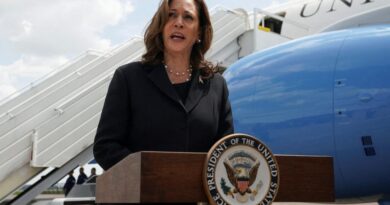Harris stokes the fire of controversy on abortion for political advantage, resists seeking peaceful resolution.

Tuesday’s vice-presidential debate shed light on the political divide over abortion.
JD Vance, a Republican, believes compromise is possible on the issue, while Democrat Tim Walz, along with his running mate Kamala Harris, insists that any state and regional variations will infringe on women’s rights.
Walz echoes Harris’ plan to remove the Senate filibuster in order to establish a nationwide right to abortion, despite a growing willingness among Americans to find common ground through federalism.
Contrary to their criticism of Donald Trump on border control, it appears that Harris and Walz are more interested in holding onto the issue rather than seeking compromise.
If they truly wanted to reduce divisiveness, they could look to Democratic icon Franklin Roosevelt’s approach to another historically contentious issue: Prohibition.
Roosevelt resolved the Prohibition turmoil by allowing states to make their own decisions on the matter.
Although national alcohol policy may seem unrelated to abortion, Prohibition was a major political issue in the late 19th and early 20th centuries, similar to the abortion debate.
Like abortion, Prohibition divided the nation along religious, cultural, and geographic lines, leading to violence.
The comparison between Prohibition and abortion is striking, both in the fervor of their supporters and the violence that ensued.
Prohibition proponents like Carrie Nation resorted to extreme measures to push their agenda, while opponents warned of the government overreach that came with its enactment.
Before the national ban on alcohol, states regulated it individually, similar to the pre-Roe era where states had their own laws on abortion.
However, just as Roe v. Wade imposed a uniform policy on abortion nationwide, the 18th Amendment did the same for alcohol prohibition.
Instead of settling the issue, the one-size-fits-all approach only deepened the divide.
Roosevelt ended this culture war by promising to repeal Prohibition during his 1932 campaign.
However, he didn’t propose a federal law to enforce a nationwide stance on alcohol, honoring regional differences and allowing states to decide.
Just as temperance faded as a national issue following state autonomy on the matter, Democrats should consider a similar approach to abortion.
Referendums at the state level are showing promise, with voters in red states like Ohio and Kansas rejecting total bans while states like Alabama enforce strict limitations. Arizona and Florida will address the issue in November.
Recent surveys indicate that abortion ranks lower in voter priorities compared to other issues like inflation, immigration, and healthcare.
Harris’s aggressive stance on abortion, aiming for a unified national policy, ignores the potential for state-level compromises that settled the Prohibition debate.
Despite ongoing debates over alcohol bans in some areas, local preferences are respected without national intervention.
In a post-Roe America, a federalist compromise on abortion may emerge, but Democrats seem hesitant to pursue this path. The November elections will reveal their strategy’s effectiveness.
Howard Husock is an American Enterprise Institute senior fellow and the author of “The Poor Side of Town — And Why We Need It.”



